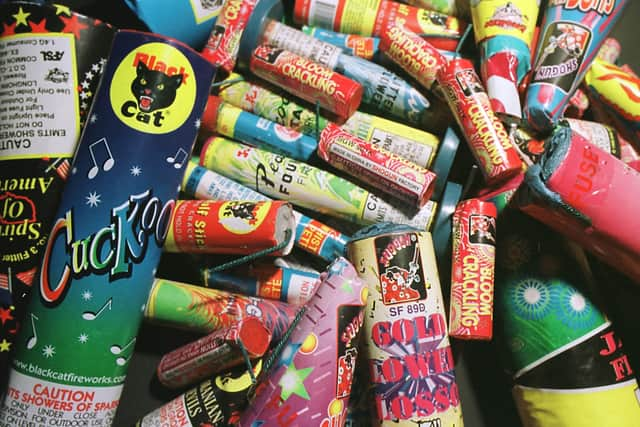Fireworks law UK: display rules, what time you can set fireworks off and age and noise limits


Firefighters in Scotland have issued a warning regarding dangerous and unacceptable behaviour, as they face a barrage of fireworks, bricks and bottles in the days leading up to Bonfire Night. Emergency response teams, mobilised to tackle multiple outdoor fires, encountering hostile incidents on two separate occasions during Monday evening (30 October) in Ardrossan, North Ayrshire.
On Tuesday (31 October), which coincided with Halloween, two additional attacks occurred in the Southhouse and Sighthill neighbourhoods of Edinburgh. In light of these incidents, firefighters sought aid from Police Scotland to ensure their safety and escort them to extinguish the fires.
Advertisement
Hide AdAdvertisement
Hide AdFireworks have become an integral part of celebratory events and festivals in the United Kingdom, igniting the night sky with dazzling colours and mesmerising displays from Bonfire Night to New Year's Eve. However, with great spectacle comes great responsibility, and the UK has established a framework of fireworks laws and safety regulations designed to protect both the public and the environment.
Whether you're planning a private display or attending a public event, understanding these rules is crucial to both your enjoyment and the safety of those around you. Here is everything you need to know.


Which laws affect fireworks in the UK?
Fireworks laws in the UK are designed to regulate the sale, possession and use of fireworks to ensure safety and reduce the risk of accidents and injuries. The laws and regulations surrounding fireworks in the UK are primarily governed by the Fireworks Regulations 2004 and the Fireworks (Safety) Regulations 1997.
Here are some of the key rules and regulations in place in the UK.
Advertisement
Hide AdAdvertisement
Hide AdAge Restrictions: You must be 18 years or older to buy or possess fireworks in the UK.
Sale of Fireworks: Fireworks - including sparklers - are generally only available for sale to the public during specific periods. These include the period around Bonfire Night (15 October to 10 November), New Year's Eve (26 to 31 December) and three days before both Diwali and Chinese New Year. Retailers must have a licence to sell fireworks, and these licences are typically issued for a short period around the specified occasions.
Noise Limits: There are restrictions on the maximum noise level that fireworks can produce. Some fireworks are labelled as "low noise" and are designed to be quieter, making them suitable for use in residential areas.
Display Fireworks: Organised firework displays, such as those at public events or celebrations, must be conducted by trained professionals who have obtained the necessary permits and licences.
Advertisement
Hide AdAdvertisement
Hide AdTime Restrictions: The use of fireworks is generally restricted to specific hours. For example, fireworks cannot be set off between 11 pm and 7 am, except on specific occasions like Bonfire Night (when the curfew is extended to midnight) and New Year's Eve (when it's extended to 1 am).
Private Use: Individuals can use fireworks in their private gardens or on their property, but they must do so responsibly and within the designated time limits. There are also restrictions on the types of fireworks that can be purchased for private use; Category 4 fireworks can only be used by professionals..
Safety Precautions: It is essential to follow safety guidelines when using fireworks and to use them responsibly to avoid accidents and injuries. This includes keeping a safe distance, following the instructions on the packaging, and having a responsible adult supervise the use of fireworks.
What happens if you break the rules?
The specific penalties for breaking fireworks laws can vary depending on the nature and severity of the offence.
Advertisement
Hide AdAdvertisement
Hide AdIndividuals who break fireworks laws may be subject to fines, the amount of which can vary depending on the specific offence. For example, selling fireworks without the necessary licence or selling fireworks to someone under the legal age could lead to fines.
In more serious cases, individuals may face imprisonment as a penalty for violating fireworks laws. This is more likely to occur in cases of severe misconduct or when safety is seriously compromised.
Courts may also impose community orders as an alternative to imprisonment, which may include performing unpaid work or participating in programs aimed at addressing the offender's behaviour.
In less severe cases, individuals might receive a formal caution or warning instead of facing immediate fines or imprisonment, and fireworks used or possessed illegally may be confiscated by law enforcement authorities.
Comment Guidelines
National World encourages reader discussion on our stories. User feedback, insights and back-and-forth exchanges add a rich layer of context to reporting. Please review our Community Guidelines before commenting.
